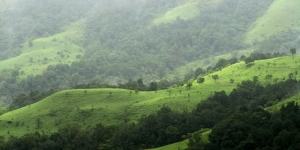Western Ghats Ecologically Sensitive Areas

The Western Ghats, a UNESCO World Heritage site, are facing critical discussions on the designation of Ecologically Sensitive Areas (ESAs). An expert panel is actively reviewing proposals from Gujarat, Maharashtra, and Goa. This follows a prolonged period of indecision concerning environmental protection in this vital region. The panel, led by Sanjay Kumar, is considering separate notifications for these states, which could expedite the protection process.
Background of the Western Ghats
The Western Ghats stretch over six states in India. They are known for their rich biodiversity and unique ecosystems. In 2012, the Madhav Gadgil report proposed extensive ecological protection. This report suggested that the entire region should be designated as ecologically sensitive. However, political resistance has hindered its implementation.
Current Status of ESA Designation
The panel is evaluating the extent of ESAs in Gujarat, Maharashtra, and Goa. Reports indicate that Gujarat has the least area designated as ESA. Maharashtra has been proactive in submitting information, while Goa has also complied with the panel’s requests. The committee aims to resolve these states’ issues before addressing the remaining three states – Kerala, Karnataka, and Tamil Nadu.
Challenges in Consensus Building
Achieving consensus among all six states has proven challenging. Karnataka has publicly opposed the Kasturirangan report, which proposed a total ESA area of 56,825 sq km. This opposition reflects broader concerns about the impact of ESA designations on local industries and development.
Legal and Ecological Considerations
The panel is committed to ensuring that any ESA designations withstand legal scrutiny. They are exploring financial incentives for states to alleviate concerns about economic impacts. The goal is to protect the ecological integrity of the Western Ghats while considering local livelihoods.
Recent Events Impacting Discussions
Recent natural disasters, such as the Wayanad landslides, have heightened awareness of the need for effective environmental protection measures. These incidents have telld the urgency of establishing ESAs to mitigate future risks and safeguard communities.
Future Steps and Recommendations
The expert panel is expected to conduct further deliberations by the end of August. They will assess the submissions from the three states and aim to finalise recommendations. The possibility of phased notifications could lead to quicker implementation of protective measures.





